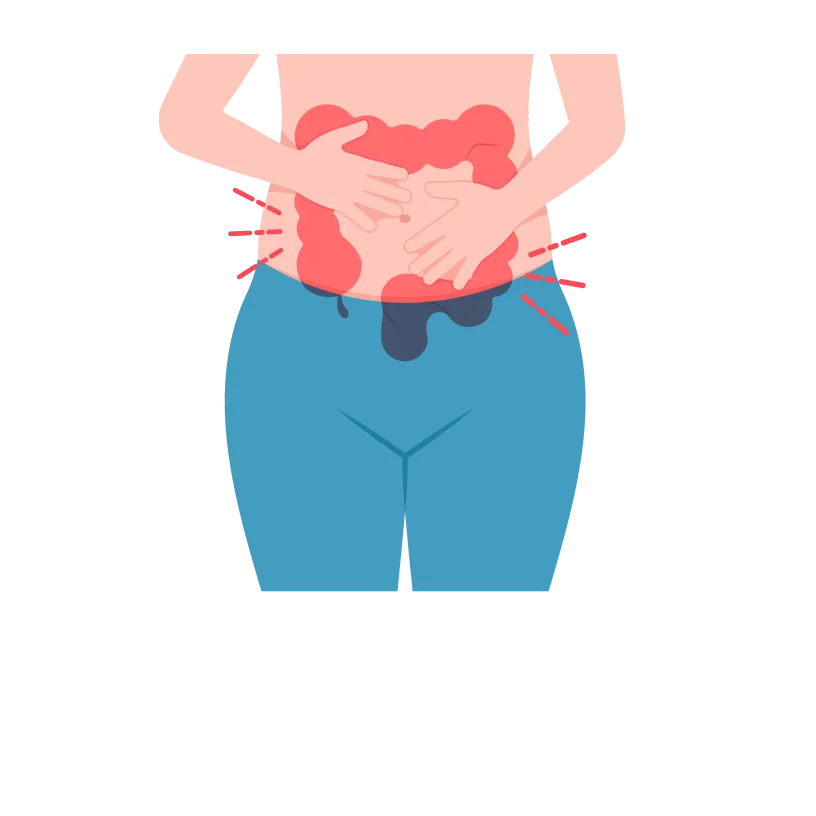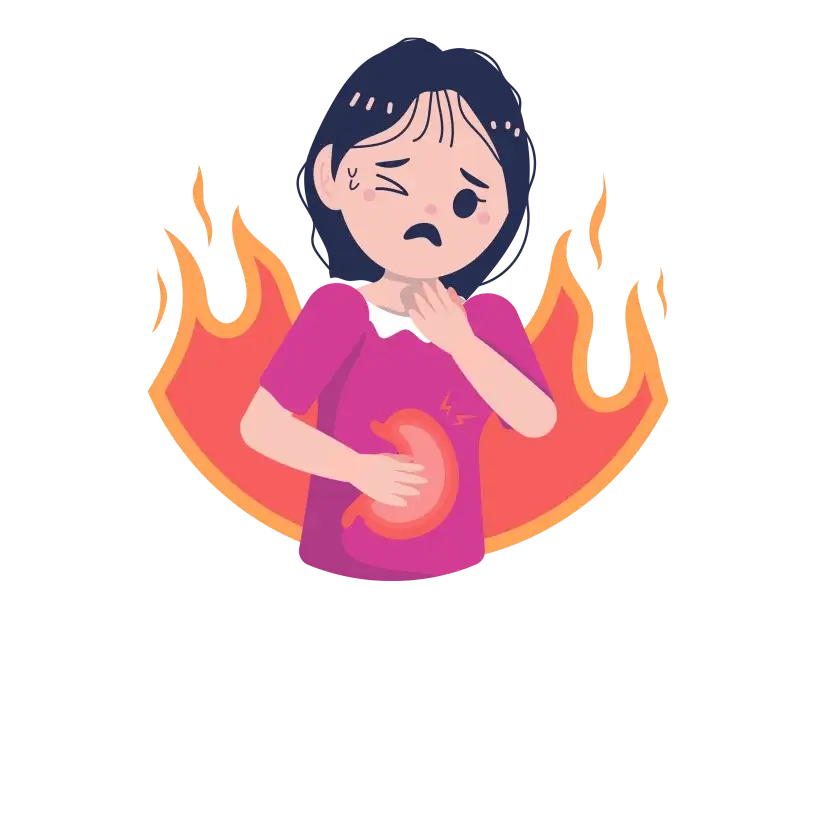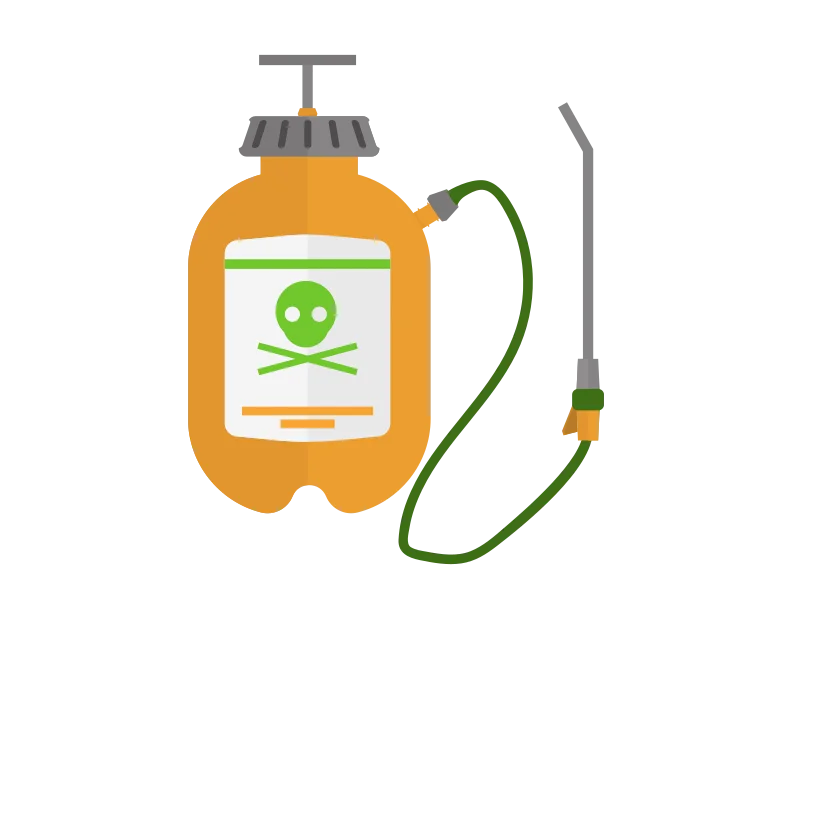Menu

The first weeks of pregnancy can be a lot to take in, with new physical changes and regular check-ups. If it’s your first time being pregnant, it might feel challenging because everything is new and unfamiliar. The first trimester technically begins before conception, dating from the first day of your last period and extends to the 13th week.
You and your baby undergo rapid changes, setting the stage for the months ahead. This period is crucial for organ development in the fetus, making it especially vulnerable to potential harm from toxins, drugs, and infections.
It’s a time when extra caution and care are essential to support a healthy pregnancy. This article discusses what to expect in the first trimester, including tips to stay healthy.
In the first stages of pregnancy, your body undergoes noticeable changes due to hormonal shifts affecting different organs.

The heightened levels of progesterone, a hormone crucial for pregnancy, often contribute to increased feelings of tiredness or fatigue. Feeling tired in the first few months of pregnancy is normal because your body works hard to support the early stages.
Make sure to get plenty of rest during this time. The good news is that you may start feeling more energetic in the second trimester.

Sore breasts during pregnancy are often a result of hormonal changes, making them feel tender and larger. Increased blood flow may make veins more visible in your breasts. Additional changes can include darkened areolas (the area around the nipples) and alterations to the nipples themselves.
To feel more comfortable, consider going up a bra size or using a supportive bra.

Nausea, commonly known as morning sickness during pregnancy, is frequently triggered by hormonal changes. Although it’s termed “morning sickness,” it can occur anytime. The fluctuations in hormones, particularly during the early stages of pregnancy, can lead to this feeling of nausea.
To combat nausea effectively, adopt a regimen of eating smaller, more frequent meals and maintaining hydration by drinking fluids regularly. Incorporating ginger tea or ginger ale into your routine can provide relief from nausea, as can having crackers or a light snack before rising in the morning.

During pregnancy, hormonal changes can make your emotions go up and down quickly. You might go from feeling anxious or scared to excited or weepy quickly. Talking about your feelings with a friend or partner can be beneficial during these moments of emotional fluctuation.

During pregnancy, you might feel a bit out of breath, especially with light activities. This happens because your heart works harder to pump more blood for your pregnancy. Your pulse may be faster, and you might get tired more quickly.
Just be mindful of your body’s signals, and if you feel short of breath or tired, take breaks and rest.

Increased urination during pregnancy is caused by the expanding uterus putting pressure on the bladder. This pressure can result in the need for more frequent trips to the bathroom. As your baby grows and the uterus expands, it compresses the bladder, making you feel the urge to urinate more often.

In early pregnancy, skin changes, including acne, are frequent and linked to hormonal shifts. Higher levels of hormones like estrogen and progesterone can affect oil production, altering skin texture. You may enjoy a clearer complexion or a “pregnancy glow,” while others might experience increased acne.
Consistent and gentle skincare, avoiding harsh products, and staying hydrated can be beneficial in managing these changes in your skin.

Constipation in pregnancy is often due to elevated progesterone levels, which slow down the muscle contractions responsible for moving food through your digestive system. Additionally, the increased iron intake from prenatal vitamins can contribute to uncomfortable constipation and gas, leading to a bloated feeling.
To alleviate this, consider incorporating more fibre into your diet, staying well-hydrated, and engaging in regular physical activity, as it can aid in maintaining smoother digestion.

During early pregnancy, observing a thin, milky white discharge, known as leukorrhea, is normal. While wearing a panty liner for comfort is fine, it’s important to avoid using tampons to prevent introducing germs into the vagina.

During pregnancy, increased production of the hormone progesterone relaxes smooth muscles, including the ring of muscle in your lower oesophagus. This muscle usually helps keep food and stomach acids down.
However, when it loosens, it can lead to acid reflux, commonly known as heartburn. To prevent heartburn discomfort, opt for smaller, frequent meals, avoid trigger foods, stay upright after eating, elevate your upper body while sleeping, drink fluids between meals, chew gum for saliva production, and consult a healthcare provider for antacid options if needed.

The heightened levels of progesterone, a hormone crucial for pregnancy, often contribute to increased feelings of tiredness or fatigue. Feeling tired in the first few months of pregnancy is normal because your body works hard to support the early stages.
Make sure to get plenty of rest during this time. The good news is that you may start feeling more energetic in the second trimester.

Sore breasts during pregnancy are often a result of hormonal changes, making them feel tender and larger. Increased blood flow may make veins more visible in your breasts. Additional changes can include darkened areolas (the area around the nipples) and alterations to the nipples themselves.
To feel more comfortable, consider going up a bra size or using a supportive bra.

Nausea, commonly known as morning sickness during pregnancy, is frequently triggered by hormonal changes. Although it’s termed “morning sickness,” it can occur anytime. The fluctuations in hormones, particularly during the early stages of pregnancy, can lead to this feeling of nausea.
To combat nausea effectively, adopt a regimen of eating smaller, more frequent meals and maintaining hydration by drinking fluids regularly. Incorporating ginger tea or ginger ale into your routine can provide relief from nausea, as can having crackers or a light snack before rising in the morning.

During pregnancy, hormonal changes can make your emotions go up and down quickly. You might go from feeling anxious or scared to excited or weepy quickly. Talking about your feelings with a friend or partner can be beneficial during these moments of emotional fluctuation.

During pregnancy, you might feel a bit out of breath, especially with light activities. This happens because your heart works harder to pump more blood for your pregnancy. Your pulse may be faster, and you might get tired more quickly.
Just be mindful of your body’s signals, and if you feel short of breath or tired, take breaks and rest.

Increased urination during pregnancy is caused by the expanding uterus putting pressure on the bladder. This pressure can result in the need for more frequent trips to the bathroom. As your baby grows and the uterus expands, it compresses the bladder, making you feel the urge to urinate more often.

In early pregnancy, skin changes, including acne, are frequent and linked to hormonal shifts. Higher levels of hormones like estrogen and progesterone can affect oil production, altering skin texture. You may enjoy a clearer complexion or a “pregnancy glow,” while others might experience increased acne.
Consistent and gentle skincare, avoiding harsh products, and staying hydrated can be beneficial in managing these changes in your skin.

Constipation in pregnancy is often due to elevated progesterone levels, which slow down the muscle contractions responsible for moving food through your digestive system. Additionally, the increased iron intake from prenatal vitamins can contribute to uncomfortable constipation and gas, leading to a bloated feeling.
To alleviate this, consider incorporating more fibre into your diet, staying well-hydrated, and engaging in regular physical activity, as it can aid in maintaining smoother digestion.

During early pregnancy, observing a thin, milky white discharge, known as leukorrhea, is normal. While wearing a panty liner for comfort is fine, it’s important to avoid using tampons to prevent introducing germs into the vagina.

During pregnancy, increased production of the hormone progesterone relaxes smooth muscles, including the ring of muscle in your lower oesophagus. This muscle usually helps keep food and stomach acids down.
However, when it loosens, it can lead to acid reflux, commonly known as heartburn. To prevent heartburn discomfort, opt for smaller, frequent meals, avoid trigger foods, stay upright after eating, elevate your upper body while sleeping, drink fluids between meals, chew gum for saliva production, and consult a healthcare provider for antacid options if needed.
Formation of the placenta, umbilical cord and amniotic sac: After the egg is fertilized, it turns into a bunch of rapidly dividing cells called a blastocyst, which attaches itself to the lining of your uterus. At the same time, the placenta, umbilical cord, and amniotic sac starts to develop.
The placenta is like a bridge between you and your baby, helping with nutrient and oxygen exchange. The umbilical cord connects the baby to the placenta, acting like a lifeline.
The amniotic sac wraps around the growing baby in fluid, keeping it safe and allowing for movement. These early developments are crucial for supporting and protecting the baby as it grows.
Neural tube formation: In the early stages of pregnancy, your baby’s nervous system changes significantly. The initially open neural tube transforms into the brain and spinal cord. This shift allows nerves and muscles to start working together, enabling your baby to move, although it’s too early for you to feel these movements.
The neural tube formation lays the groundwork for your baby’s ability to move independently, which you’ll begin to notice in the coming weeks.
Heart development: In the early weeks of pregnancy, something incredible happens – your baby’s heart starts to form and beat. By week 6, you can hear this tiny heartbeat through ultrasound, racing rapidly, between 120 to 160 beats per minute.
This is also when red blood cells begin to form, marking the beginning of the circulatory system. Hearing that little heartbeat is a special moment in early pregnancy and a positive sign of your baby’s development.
Digestive system formation: As your pregnancy progresses, your baby is busy forming its digestive system, which includes the creation of the intestines and kidneys. This happens in the early stages of fetal development.
The intestines, important for processing nutrients, begin to take shape, and the kidneys, responsible for filtering waste, also start developing.
These steps lay the foundation for your baby’s ability to eat, process nutrients, and manage waste after birth.
Lungs and other organ formation: Your baby has important parts like lungs and other organs, but they’re not completely ready yet. Even though these organs exist, they still need more time to grow and become fully functional. It’s like having the puzzle pieces, but the picture isn’t complete until later in the pregnancy.
As time passes, these organs will keep developing until they are ready for your baby to breathe and do other essential things after birth.
Skeleton formation: Your baby is starting to grow a soft skeleton. This means the bones are beginning to form but are still soft. It’s like the framework for a house just starting to take shape. As your pregnancy progresses, these soft bones will gradually harden and strengthen.
Facial features: As your pregnancy progresses, your baby takes on a more recognizable human form. Tiny arms, legs, fingers, and toes start to appear. The face develops with eyes, ears, a nose, and a mouth. Inside the mouth, a tongue and tooth buds begin to grow.
Eyelids form to cover your baby’s eyes, and by the end of the trimester, they even have tiny fingernails.
Sexual Differentiation: Your baby’s private parts are starting to form, but it’s too early to know if it’s a boy or a girl through ultrasound.
Even though things are growing, they haven’t yet developed enough to see the difference. Finding out the gender usually happens a bit later in the pregnancy.
At the end of the first trimester, your baby will measure approximately 2 ½ to 3 inches.
Miscarriage: A miscarriage is a pregnancy loss that can occur, unfortunately, in the early stages, typically before the 12th week. It involves the spontaneous termination of the pregnancy, and it can be emotionally challenging. Miscarriages are relatively common, and they may happen due to various reasons, such as chromosomal abnormalities or issues with the embryo’s development.
If you experience symptoms like heavy bleeding, severe abdominal pain, or passing of tissue, it’s crucial to seek immediate medical attention.
Infections: Infections during pregnancy can pose risks to both you and the developing fetus if left untreated. These risks can include complications such as preterm birth. You need to address and treat infections to minimize potential harm promptly.
Ectopic pregnancies: An ectopic pregnancy occurs when a fertilized egg attaches outside the uterus, often in the fallopian tube. Despite a positive pregnancy test, it can’t properly develop outside the uterus and poses serious risks, especially if the fallopian tube ruptures.
This is considered a medical emergency, occurring in about 1 in 50 pregnancies, and requires immediate intervention from healthcare providers.
Swift treatment is crucial to address potential complications, including severe bleeding and infection, associated with a ruptured ectopic pregnancy.
Hyperemesis Gravidarum: Hyperemesis Gravidarum is a severe form of nausea and vomiting during pregnancy that can lead to dehydration and weight loss.
If you cannot keep food or fluids down, feel dizzy, or lose significant weight, it’s crucial to seek medical attention promptly.
Your healthcare provider can assess the severity, offer appropriate treatment, and ensure you and your baby’s well-being.
Molar pregnancy: A molar pregnancy is a situation where the placenta doesn’t develop as it should. Instead, a tumour forms in the uterus, turning the placenta into a cluster of fluid-filled sacs known as cysts.
This abnormal development can be challenging for both the mother and the developing fetus. It’s rare in about 1 (0.1 percent) of every 1,000 pregnancies.
Molar pregnancy is usually short-lived because the abnormal placenta can’t effectively nourish or support a baby’s growth. In rare instances, this situation can pose health risks for the mother.
Your healthcare provider will conduct a thorough physical and pelvic examination during your first prenatal visit. You can expect following tests:
In the first trimester, it’s crucial to implement lifestyle changes to promote your well-being and your baby’s development. It’s advised to refrain from the following during your first trimester and throughout your pregnancy journey:

High-mercury fish, such as shark and swordfish, should be limited due to potential harm to the fetal nervous system. Additionally, avoiding raw or undercooked seafood helps reduce the risk of foodborne illnesses associated with harmful bacteria or parasites.
Unpasteurized dairy products, known to carry bacteria like Listeria, should be substituted with pasteurized alternatives to minimize potential risks.

During pregnancy, it is essential to completely abstain from alcohol consumption and avoid both smoking and exposure to secondhand smoke. Alcohol intake can lead to fetal alcohol spectrum disorders.

It’s advisable to restrict caffeine intake to a moderate level during pregnancy, as excessive amounts have been associated with potential pregnancy complications. High caffeine consumption has been linked to an increased risk of miscarriage.

Extended exposure to high temperatures, such as those in hot tubs and saunas, can pose risks to the developing fetus during pregnancy.
Prolonged exposure to elevated temperatures may increase the mother’s core body temperature, potentially causing overheating.
This overheating, especially during the critical stages of fetal development, has been associated with an increased risk of certain congenital disabilities.

Recreational drugs, particularly opioids, pose serious risks during pregnancy. Opioids, including substances like heroin or certain prescription painkillers, can cross the placenta and reach the developing fetus.

Engaging in strenuous or intense strength training that may pose a risk of injury to your abdominal area is not advisable during pregnancy.
Vigorous activities with a high risk of abdominal trauma should be approached with caution to protect the well-being of both the mother and the developing fetus.
Opting for moderate and low-impact exercises safe for pregnancy is recommended, ensuring a balance between staying active and minimizing potential risks.

Cat litter may carry a parasitic disease called toxoplasmosis. Toxoplasmosis can pose risks during pregnancy, potentially leading to complications.
Pregnant individuals are advised to take precautions, such as avoiding handling cat litter or using gloves if necessary.
Maintaining good hygiene practices, including washing hands thoroughly after contacting cat litter, helps minimize the risk of toxoplasmosis transmission.

Exercise caution regarding potential hazards in your environment during pregnancy. Be mindful of harmful ingredients in pesticides, cleaning products, and materials in your workplace. Exposure to such substances can pose risks to both you and your developing baby.

High-mercury fish, such as shark and swordfish, should be limited due to potential harm to the fetal nervous system. Additionally, avoiding raw or undercooked seafood helps reduce the risk of foodborne illnesses associated with harmful bacteria or parasites.
Unpasteurized dairy products, known to carry bacteria like Listeria, should be substituted with pasteurized alternatives to minimize potential risks.

During pregnancy, it is essential to completely abstain from alcohol consumption and avoid both smoking and exposure to secondhand smoke. Alcohol intake can lead to fetal alcohol spectrum disorders.

It’s advisable to restrict caffeine intake to a moderate level during pregnancy, as excessive amounts have been associated with potential pregnancy complications. High caffeine consumption has been linked to an increased risk of miscarriage.

Extended exposure to high temperatures, such as those in hot tubs and saunas, can pose risks to the developing fetus during pregnancy.
Prolonged exposure to elevated temperatures may increase the mother’s core body temperature, potentially causing overheating.
This overheating, especially during the critical stages of fetal development, has been associated with an increased risk of certain congenital disabilities.

Recreational drugs, particularly opioids, pose serious risks during pregnancy. Opioids, including substances like heroin or certain prescription painkillers, can cross the placenta and reach the developing fetus.

Engaging in strenuous or intense strength training that may pose a risk of injury to your abdominal area is not advisable during pregnancy.
Vigorous activities with a high risk of abdominal trauma should be approached with caution to protect the well-being of both the mother and the developing fetus.
Opting for moderate and low-impact exercises safe for pregnancy is recommended, ensuring a balance between staying active and minimizing potential risks.

Cat litter may carry a parasitic disease called toxoplasmosis. Toxoplasmosis can pose risks during pregnancy, potentially leading to complications.
Pregnant individuals are advised to take precautions, such as avoiding handling cat litter or using gloves if necessary.
Maintaining good hygiene practices, including washing hands thoroughly after contacting cat litter, helps minimize the risk of toxoplasmosis transmission.

Exercise caution regarding potential hazards in your environment during pregnancy. Be mindful of harmful ingredients in pesticides, cleaning products, and materials in your workplace. Exposure to such substances can pose risks to both you and your developing baby.
Regular communication with your healthcare provider is crucial throughout your pregnancy, especially during the first trimester. While certain discomforts like morning sickness and fatigue are typical during this phase, specific symptoms may require immediate contact with your healthcare provider. These symptoms include:
The first trimester begins before conception, counting from the first day of your last menstrual period and extending until the 13th week of pregnancy.
The time varies among individuals and pregnancies, influenced by factors like body type and age. You may notice your bump starting to emerge by the end of the first trimester, but it might take a few more weeks to become noticeable. If it’s not your first pregnancy, your bump may show earlier due to the abdominal muscles being more stretched from previous pregnancies.
During the first trimester, your emotions may go through various changes. Hormonal fluctuations, particularly in estrogen and progesterone, can lead to mood swings. It’s common to experience a range of emotions, from joy to irritability, as your body adjusts to the changes brought on by pregnancy.
Taking care of your emotional well-being through proper nutrition, sufficient sleep, and moments of self-care can be beneficial during this time. Discussing your feelings with friends, family, or your partner may provide additional support if you are overwhelmed.
Spotting or light bleeding in the early weeks of pregnancy is generally considered normal, possibly due to implantation. However, heavy bleeding or bleeding that lasts more than one day should be promptly discussed with your pregnancy care provider.
If you experience substantial or prolonged bleeding, it’s important to seek medical attention to ensure your well-being and address any potential concerns.
The first trimester is crucial because that’s when most of your baby’s major organs and body systems form. During this critical phase, exposure to toxins, harmful substances, or infections can have a profound impact on the fetus’s growth and development.
Such exposure during the first trimester increases the risk of congenital disorders, potentially affecting your baby’s health at birth. Therefore, maintaining a healthy and safe environment, avoiding harmful substances, and following prenatal care guidelines are crucial during this period to support optimal fetal development.
.
The first trimester begins before conception, counting from the first day of your last menstrual period and extending until the 13th week of pregnancy.
The time varies among individuals and pregnancies, influenced by factors like body type and age. You may notice your bump starting to emerge by the end of the first trimester, but it might take a few more weeks to become noticeable.
If it’s not your first pregnancy, your bump may show earlier due to the abdominal muscles being more stretched from previous pregnancies.
During the first trimester, your emotions may go through various changes. Hormonal fluctuations, particularly in estrogen and progesterone, can lead to mood swings. It’s common to experience a range of emotions, from joy to irritability, as your body adjusts to the changes brought on by pregnancy.
Taking care of your emotional well-being through proper nutrition, sufficient sleep, and moments of self-care can be beneficial during this time. Discussing your feelings with friends, family, or your partner may provide additional support if you are overwhelmed.
Spotting or light bleeding in the early weeks of pregnancy is generally considered normal, possibly due to implantation. However, heavy bleeding or bleeding that lasts more than one day should be promptly discussed with your pregnancy care provider.
If you experience substantial or prolonged bleeding, it’s important to seek medical attention to ensure your well-being and address any potential concerns.
The first trimester is crucial because that’s when most of your baby’s major organs and body systems form. During this critical phase, exposure to toxins, harmful substances, or infections can have a profound impact on the fetus’s growth and development.
Such exposure during the first trimester increases the risk of congenital disorders, potentially affecting your baby’s health at birth. Therefore, maintaining a healthy and safe environment, avoiding harmful substances, and following prenatal care guidelines are crucial during this period to support optimal fetal development.
1. American Academy of Family Physicians: Ectopic Pregnancy.
2. Bjørklund, G., Chirumbolo, S., Dadar, M., Pivina, L., Lindh, U., Butnariu, M. and Aaseth, J., 2019: Mercury exposure and its effects on fertility and pregnancy outcome. Basic & clinical pharmacology & toxicology, 125(4), pp.317-327.
3. Centers for Disease Control and Prevention: Urgent Maternal Warning Signs.
4. Cleveland Clinic: First Trimester.
5. Healthline. Molar Pregnancy: What You Need to Know.
6. Healthline: The first Trimester of Pregnancy.
7. March of Dimes: Misscarriage.
8. McQuire, C., Daniel, R., Hurt, L., Kemp, A. and Paranjothy, S., 2020. The causal web of foetal alcohol spectrum disorders: a review and causal diagram. European child & adolescent psychiatry, 29, pp.575-594.
9. Nadeau, H.C., Subramaniam, A. and Andrews, W.W., 2016, April. Infection and preterm birth: In Seminars in Fetal and Neonatal Medicine (Vol. 21, No. 2, pp. 100-105). WB Saunders.
10. WebMD: First Trimester of Pregnancy.
11. Weng, X., Odouli, R. and Li, D.K., 2008. Maternal caffeine consumption during pregnancy and the risk of miscarriage: a prospective cohort study. American journal of obstetrics and gynecology, 198(3), pp.279-e1.
© Mindsmaking 2024